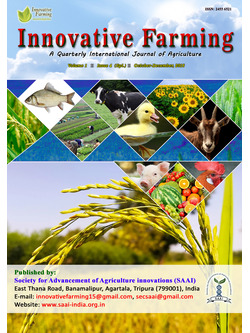
Nutritional Value of Pulses and their Importance in Human Life
Aritra Kumar Mukherjee
Dept. of Agricultural Chemistry and Soil Science, Bidhan Chandra Krishi Viswavidyalaya, Mohanpur, West Bengal-741252, INDIA
Anandkumar Naorem
Dept. of Agricultural Chemistry and Soil Science, Bidhan Chandra Krishi Viswavidyalaya, Mohanpur, West Bengal-741252, INDIA
Shiva Kumar Udayana*
Dept. of Agricultural Chemistry and Soil Science, Bidhan Chandra Krishi Viswavidyalaya, Mohanpur, West Bengal-741252, INDIA
Gyanendra Kumar
Dept. of Agricultural Chemistry and Soil Science, Bidhan Chandra Krishi Viswavidyalaya, Mohanpur, West Bengal-741252, INDIA
DOI: NIL
Keywords: Cancer, diabetes, gluten, oligosaccharide
Abstract
Pulses are among the most extensively used foods in the world. A wide variety of pulses can be grown globally, making them important both economically as well as nutritionally. In terms of nutritional aspects, pulses have been an important source of plant-based protein in developing countries, where animal-based protein is lacking. Pulse crop is a rich source of carbohydrate, protein, fat, vitamins and micronutrient such as iron, zinc. Consumption of half a cup of beans or peas per day can enhance diet quality by increasing intakes of these nutrients. In conclusion, including pulses in the diet is a healthy way to meet dietary recommendations and is associated with reduced risk of several chronic diseases.
Downloads
not found
Reference
Kushwah, A., Rajawat, P., and Kushwah, H. S. (2002). Nutritional evaluation of extruded Vicia faba L. as a protein supplement in cereal based diet in rats. Indian Journal of Experimental Biology, 40(1), 49-52.
Swaminathan, M. S., and Bhavani, R. V. (2013). Food production and availability - Essential prerequisites for sustainable food security. Indian Journal of Medical Research, 138(3), 383–391.
